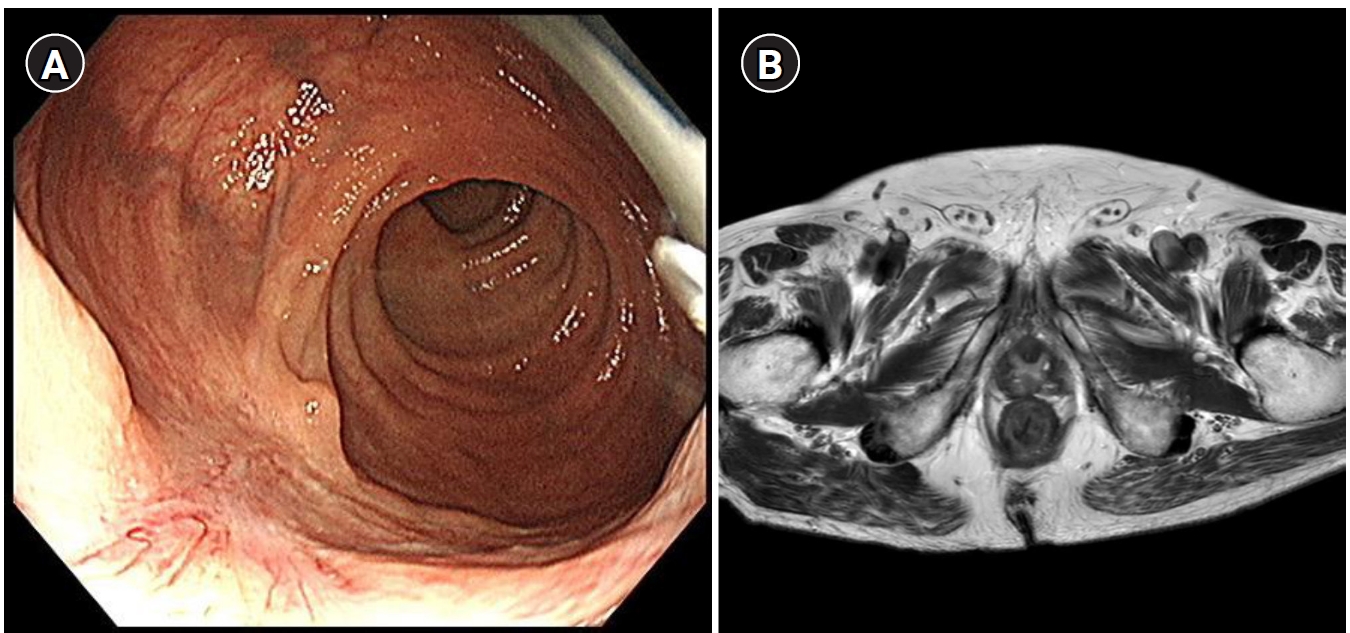| In Ja Park | 3 Articles |
|
[English]

Non‑operative management, particularly the watch and wait (WW) strategy, has emerged as an alternative to total mesorectal excision for selected patients with locally advanced rectal cancer who achieve a clinical complete response (cCR) after neoadjuvant treatment. This narrative review examines oncologic outcomes, functional and quality‑of‑life benefits, diagnostic challenges, and surveillance requirements associated with WW compared to radical surgery. Evidence from randomized trials and international registries indicates that WW provides overall and disease-free survival rates comparable to those of surgery, provided that stringent selection criteria and intensive surveillance are maintained for 3 to 5 years. Local regrowth occurs in 15%–40% of patients—most commonly within 24 months—but salvage surgery is curative in over 90% of cases and restores oncologic equivalence. Nevertheless, distant metastasis is more frequent in patients who experience regrowth, underscoring the importance of early detection and the need for optimized systemic therapy. Accurate determination of cCR remains the primary limitation; digital rectal examination, high‑resolution magnetic resonance imaging, and endoscopy, even when combined, cannot reliably exclude microscopic residual disease. Total neoadjuvant therapy increases cCR rates to 30%–60% and expands the pool of WW candidates, but also intensifies the need for standardized response definitions and surveillance algorithms. WW offers organ preservation and quality‑of‑life improvements without compromising survival in carefully selected patients, provided that multidisciplinary teams ensure rigorous response assessment and lifelong monitoring. Future advances in imaging, molecular biomarkers, and individualized risk stratification are expected to further enhance the safety of WW and expand eligibility to a broader patient population.
[English]
ABSTRACT
Over the past 3 years, the COVID-19 pandemic has posed significant challenges to the healthcare system, leading to delays in the diagnosis and treatment of various diseases due to the need for social distancing measures. Colorectal cancer has not been immune to these disruptions, and research in various countries has explored the impact of COVID-19 on the diagnosis and treatment of colorectal cancer. One notable consequence has been the postponement of colorectal cancer screenings, potentially resulting in disease progression, which can adversely affect surgical and oncological outcomes. Furthermore, the treatment approach for colorectal cancer may vary depending on the extent of disease progression and the healthcare policies implemented in response to the COVID-19 pandemic. In this systematic review, we examine treatment strategies, surgical outcomes, and oncological variables across multiple studies focusing on colorectal cancer treatment during the COVID-19 pandemic. The purpose of this analysis was to assess how medical policies enacted in response to the COVID-19 pandemic have influenced the outcomes of colorectal cancer treatment. We hope that this review will provide valuable insights and serve as a foundational resource for developing guidelines to address potential medical crises in the future.
[English]
Local recurrence was reduced considerably due to the introduction of neoadjuvant chemoradiotherapy as treatment for locally advanced rectal cancer. However, certain proportions of patients would experience local recurrence inevitably; the lateral pelvic lymph node is the primary site of rectal cancer recurrence even after administering neoadjuvant chemoradiotherapy. It remains unknown whether lateral pelvic lymph node metastasis is considered as a locoregional disease or a distant metastasis. Although the oncologic stance of lateral pelvic lymph node metastasis is controversial, there is increasing research interest in evaluating the conditional benefit of lateral pelvic lymph node dissection in a subgroup of patients. Researchers reported an improvement in local control in patients with clinically suspected lateral pelvic lymph node metastasis before/or after neoadjuvant chemoradiotherapy who underwent lateral pelvic lymph node dissection. However, there is no clear consensus regarding the indication, diagnostic method, and extent of lateral pelvic lymph node dissection. Citations Citations to this article as recorded by

|
|

